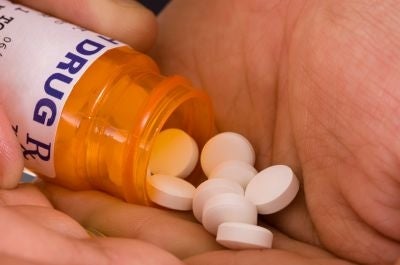Your support helps us to tell the story
From reproductive rights to climate change to Big Tech, The Independent is on the ground when the story is developing. Whether it's investigating the financials of Elon Musk's pro-Trump PAC or producing our latest documentary, 'The A Word', which shines a light on the American women fighting for reproductive rights, we know how important it is to parse out the facts from the messaging.
At such a critical moment in US history, we need reporters on the ground. Your donation allows us to keep sending journalists to speak to both sides of the story.
The Independent is trusted by Americans across the entire political spectrum. And unlike many other quality news outlets, we choose not to lock Americans out of our reporting and analysis with paywalls. We believe quality journalism should be available to everyone, paid for by those who can afford it.
Your support makes all the difference.A landmark study across four continents has shown that a daily dose of an oral antiretroviral drug reduced the number of HIV infections among sexually active gay men by 44 percent, researchers said Tuesday.
Even higher rates of success toward preventing the virus that causes AIDS were shown among those who faithfully took the drug, said the study in the November 25 issue of the New England Journal of Medicine.
The findings were hailed as "significant" by Anthony Fauci, the director of the National Institute of Allergy and Infectious Diseases (NIAID), which carried out the study.
"Those who took the drug on 90 percent or more days had 72.8 percent fewer HIV infections," Fauci told AFP.
The study was conducted among 2,499 men, including 29 transgendered women, between the ages of 18 and 67 who were sexually active with other men but were not infected with the virus that causes AIDS.
Known as the iPrEx HIV Prevention Study, the research was carried out from July 2007 to December 2009 in six countries - Brazil, Ecuador, Peru, South Africa, Thailand and the United States.
Participants were selected at random to take a daily dose of Truvada - a combination of 200 milligrams of emtricitabine and 300 milligrams of tenofovir disoproxil fumarate - or a placebo.
All participants were given counseling on preventing the spread of the virus as well as condoms and medical care for other sexually transmitted diseases during the course of the study.
A total of 100 HIV infections were recorded among the participants during the nearly three-year-long clinical study.
Of those, 36 were recorded among the 1,251 participants given Truvada and 64 among the 1,248 who had been given a placebo, showing that the drug reduced the risk of infection by 43.8 percent, according to the authors of the study.
"This discovery alters the HIV prevention landscape forever," said Jim Pickett, director of advocacy at the AIDS Foundation of Chicago.
"While this level of efficacy is relatively strong, PrEP is not quite ready for prime time and work remains before this strategy is rolled out," he added.
"However, we are thrilled to have a new prevention option beyond male and female condoms visible on the horizon."
NIAID sponsored much of the study, with additional funds provided by the Bill and Melinda Gates Foundation. California-based Gilead Sciences, which makes Truvada, donated the drugs used in the study.
Those who carried out the study were concerned that participants would be less cautious, thinking they were protected by the drugs, but instead the subjects reported increased use of condoms and fewer sexual partners.
Ian McGowan, one of the principal investigators of the Microbicide Trials Network, cautioned that while the results were encouraging, backup methods were still needed.
"The data from the iPrEx study are encouraging but the less than ideal adherence rate to oral PrEP clearly show that we need additional prevention approaches such as rectal microbicides that could be used by men and women at risk of HIV infection through unprotected receptive anal intercourse," he said.
Gay men are one of the most at-risk groups for HIV in the United States, accounting for more than half of the 56,000 new infections each year.
One in five gay men living in 21 major US cities is infected with HIV and nearly half are unaware of it, the Centers for Disease Control and Prevention (CDC) said in a study published in September.
js-ksh/mlm

Join our commenting forum
Join thought-provoking conversations, follow other Independent readers and see their replies
Comments